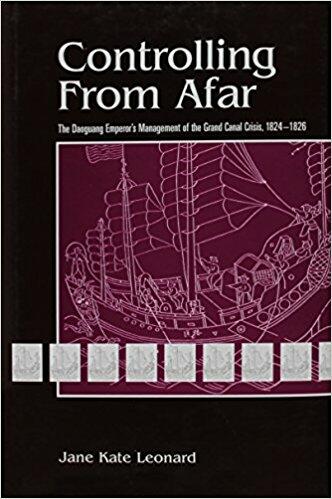Controlling from Afar
The Daoguang Emperor’s Management of the Grand Canal Crisis, 1824–1826
A nuanced account of the emperor's decisions and the interaction between the court and provincial and regional officials during the Grand Canal crisis of the 1820s
Description
Late in the winter of 1824, the Hongze Lake was dangerously swollen from floods and seepage in the region. As a rainstorm lashed the lake, wind and the waves tore two huge breaches in the dike along the lake’s eastern perimeter, sending flood waters cascading down into the Gao-Bao lakes to the east, into the Grand Canal, and beyond the canal into the flood-prone, low-lying Xiahe region between the canal and the sea. Controlling from Afar examines the Daoguang Emperor’s response to the flood of 1824 and the grain transport crisis that ensued over the next two years. With especial attention to the pivotal decisions made in 1825, Jane Kate Leonard looks at the crisis through imperial eyes. How did the emperor define its significance? How did he orchestrate the decision-making process to achieve its resolution? How did he identify the major obstacles to managing from afar a vital branch of administration that his imperial forebears had dominated since the early reigns?Past accounts have tended to view this emperor, indeed the whole imperial state, as tentative and faltering at this time, even though the first twenty years of his reign have been little studied. Controlling from Afar provides a more nuanced understanding of these watershed years that centers on the operation of complex and long-established institutions in an environment of profound economic and social change. With such an account, scholars are better equipped to abandon historical myths associated with the Daoguang reign and come to a more realistic assessment of these crucial years. Leonard’s lucid explication is accompanied by maps and drawings that clearly illustrate both the setting and the technical details of the canal.
Jane Kate Leonard is Professor of Chinese History, University of Akron. Her most recent publications explore Chinese business history of the late imperial period.

